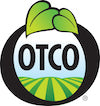From Sun to Shiitakes: Where to Get Vitamin D
Humans are not plants, yet we share a similar biological behavior in synthesizing vitamin D from the sun. Aside from the cool factor of getting an important nutrient in this manner, absorbing vitamin D is necessary for a number of reasons. And as the winter months creep in by way of shortened and often cloud-covered days, our access to the health-giving sun's rays diminishes, robbing us of its benefits, mainly helping the body effectively utilize calcium. Bones rely on calcium for growth and density; and calcium is essential for heart and nerve function among many other roles in the human body. So if we're not able to expose skin to sun for some 15 minutes each day, we must turn to our diet for vitamin D.
A number of products are fortified with vitamin D supplementation—most commonly milk and orange juice. But you can also find it in energy bars, breads, cereals and other processed foods. While these sources are certainly helpful, it's always best to eat a well-balanced diet that contains naturally occurring nutrients. And just as vitamin D's most potent delivery method comes in a most unique form, the strangeness continues with only a few foods naturally high in vitamin D.
We think of milk as containing vitamin D—and it does—but it's added in. There are naturally occurring levels of vitamin D in all dairy, but other dairy products like whey, cheese and yogurt tend to have lower levels of D because they're not made with fortified milk. Certainly organic dairy is going to be more nutrient dense than conventional. A healthier animal can supply more adequate nutrients not stripped out by harsh chemical drugs and food.
Mushrooms, particularly shiitakes, are an excellent source of vitamin D, especially when dried. Mushrooms are fungus—technically not a vegetable—and have unique behaviors that include an extraordinary ability to soak up lots of sunlight and retain vitamin D much like humans do. Eggs are another naturally occurring source of vitamin D. While one egg will only provide about ten percent of your daily D needs, it's certainly an accessible addition to your diet during periods with limited sun exposure.
A variety of fish are abundant in vitamin D, too: salmon, mackerel, herring, sardines, tuna, catfish and cod liver oil. A small tin of sardines can provide 70 percent of your daily D needs!
Exercise caution when purchasing fish—especially tuna and salmon. Bluefin tuna is a critically threatened species; and most salmon consumed in the U.S. is farm-raised, injected with colorants, fed diets of hormones, genetically modified grains and other unappetizing supplements. Instead, seek out wild-caught salmon, or opt for smaller fish like the mackerel and herring, which are also a better choice because smaller fish have a lower risk of mercury contamination.
Image by: Doxi
Leave a comment
Comments will be approved before showing up.



